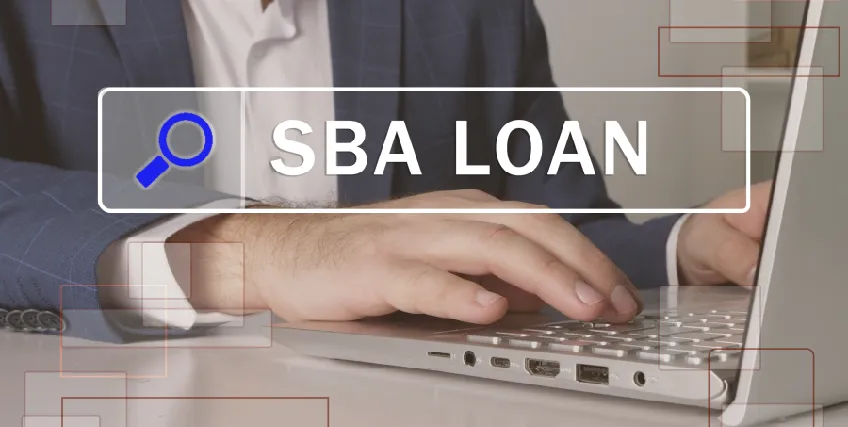Smart Ways to Increase Cash Flow with Small Business Financing
October 07, 2025 | Last Updated on: October 07, 2025

Managing the financial health of a small business can seem like a daunting task. Fortunately, there are several strategies to simplify the process, including using a cash flow loan for small business. One of the most valuable tools for small businesses is business financing, which can provide essential capital to meet operational demands, fuel growth, and offer long-term benefits like improving credit.
We’ll explore the various financing options available to small business owners and provide guidance on how to expedite the application and approval processes for quick access to the cash flow lending you need to run your business.
When to Consider Small Business Cash Flow Lending
There are several instances where using cash flow financing may be necessary or beneficial.
Startup Costs
Startup expenses can include purchasing commercial real estate, buying or leasing equipment, securing licenses and permits, and paying for inventory and marketing. Employee salaries and legal costs also add up quickly. For most entrepreneurs, these expenses surpass the capital they have on hand. Exploring financing options such as cash flow loans for small business or capital investments can provide the necessary funding to help launch your business successfully.
Cash Flow Fluctuations
Small businesses can go through periods of low cash flow due to seasonal trends, economic shifts, or temporary dips in sales. This can make it difficult to cover everyday business needs such as payroll, rent, or inventory purchases.
However, business operators can use business financing to help stabilize cash flow by providing working capital to manage these fluctuations.
Large Purchases
Some business expenses require a large loan amount, such as purchasing new equipment, bulk inventory, machinery, vehicles, office space, or expensive software. Financing can bridge this gap, enabling you to acquire essential assets without disrupting day-to-day operations.
Refinancing Existing Debt
Refinancing involves using a new loan to pay off existing debts. It can be a smart financial move if it results in better repayment terms, such as lower interest rates or reduced monthly payments. Business owners with high-interest debt from business credit cards, merchant cash advances, or other loans may find that refinancing allows them to consolidate debt, reduce financial stress, and improve cash flow. This may require a credit check, depending on the lender.
Financing Options for Small Business Owners
There are numerous financing options available to increase cash flow in a small business. However, the best option for your business depends on factors such as how much funding is needed and the business's financial situation.
Cash Flow Loans for Small Business Loans
This is one of the most common forms of cash flow loans for small businesses. Small business loans can be obtained from traditional lenders, such as banks or credit unions, or alternative online lenders. Each lender will have their own credit score requirements. Additionally, they may come with origination fees or prepayment penalties, so be sure to compare options to find the best loan product for you.
Some small business loan types include:
- Business Term Loan: A term loan provides a lump sum of cash upfront, which is repaid with interest over a set period. Term loans may be short-term (1–3 years) or long-term (5–25 years). These loans can be secured (requiring collateral) or unsecured (based solely on the borrower’s creditworthiness). Secured loans typically will have more competitive rates.
- Equipment Financing: This is a type of loan specifically for purchasing or repairing equipment, these loans use the purchased equipment as collateral. This reduces risk for the lender and often results in more favorable loan terms. Equipment loans typically feature flexible approval requirements and repayment terms that match the useful life of the asset.
- SBA Loans: The U.S. Small Business Administration (SBA) offers loan programs, such as the SBA 7(a) loan, which are partially guaranteed by the government. This guarantee lowers the risk for lenders, resulting in lower interest rates and longer repayment terms for borrowers. However, the application process can be more stringent and time-consuming than other loan types.
- Business Line of Credit: A business line of credit provides access to a revolving pool of funds, similar to a credit card. You can withdraw as much as needed up to the credit limit, and you only pay interest on the amount borrowed. This flexibility makes lines of credit ideal for managing fluctuating cash flow or covering unexpected expenses.
- Real Estate Financing: Real estate loans typically feature lower interest rates compared to other types of financing and use the purchased property as collateral. CRE loans can be a good option for business owners looking to buy land, build new facilities, or make renovations.
How to Qualify for Business Financing
Eligibility for a small business loan or other financing depends on several factors, including the lender, loan type, and the borrower’s financial situation. Lenders generally evaluate the following criteria when reviewing loan applications:
Creditworthiness
Both personal and business credit scores play a significant role in loan approval. A high credit score demonstrates a strong history of managing debt and increases the likelihood of approval for favorable loan terms. However, even business owners with bad credit can still qualify for financing, especially through alternative lenders or with secured loans. Improving credit through consistent repayment of business loans can also enhance future financing opportunities.
Financial Position
Lenders review a business’s financial health by looking at cash flow, annual revenues, and financial statements such as the income statement and balance sheet. Consistent cash flow reassures lenders that the business can take on a rigid repayment schedule.
Time in Business
Time in business is a critical factor for traditional lenders. Generally, businesses with more than two years of operations are considered lower risk. However, newer businesses can still secure financing through online lenders or by offering collateral or personal guarantees.
Tips to Get Fast Business Loan Approval
Speed is often essential when seeking business financing, particularly when funding is needed for urgent expenses. Follow these tips to give yourself the best odds of a quick underwriting process and fast funding, sometimes in a few business days.
Choose an Online Lender
Online lenders can provide much faster approval for cash flow lending and funding than traditional banks. Many online platforms offer streamlined application processes, allowing you to complete and submit everything online.
Gather Documents Ahead of Time
Being prepared with all required documentation can significantly speed up the process to get cash flow financing. Typical documents include bank statements, tax returns, business formation paperwork, and debt schedules. Having these on hand ensures there are no delays during the review process.
Final Thoughts on Cash Flow Loans for Small Business
The best thing business operators can do is research the many cash flow financing options and choose the best one for their needs. Whether you're launching a new business, expanding, or managing day-to-day cash flow, a business cashflow loan can be a valuable tool.
FAQs about Quick Business Loans
What is the quickest way to get a business loan?
The quickest way to get a business loan is to apply online through a reputable lender or financial institution that offers expedited processing. Ensure you have all necessary documentation ready, such as your business plan, financial statements, and credit history, to speed up the approval process.
How do I get a cash flow loan for small business?
To get a small business cash flow loan, research and choose a lender that fits your needs, then prepare and submit the online application with your business plan, financial statements, and credit history. Then, you can compare loan offers to find the one that works best for you.
How much does a quick business loan cost?
Yes, you can get a fast business loan for a startup by applying through online lenders that specialize in quick funding. Ensure you have a solid business plan and necessary documentation ready to expedite the approval process.
Are small business loans fixed or variable?
This will depend on the lender and the type of loan you agree to.




